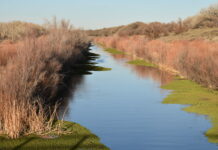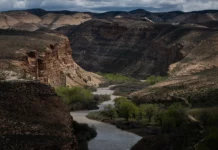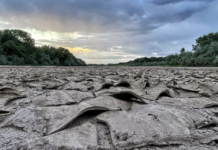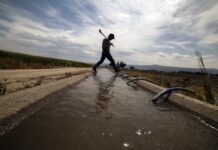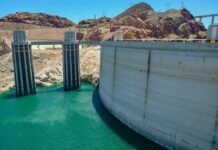Diverting the Rio Grande into a grown-over, decades-old canal could cut New Mexico’s water...
New Mexico once again owes Texas a massive water debt, so water managers are considering resurrecting the original purpose of the channel.
Utah’s Suicide Pact With the Fossil Fuel Industry
The state’s fixation on oil and gas development threatens the Colorado River watershed.
Amid a withering drought, New Mexico leaders struggle to plan for life with less...
New Mexico faces tough choices as a dire and historic drought continues and the Rio Grande is unable to give everyone what they want or need.
It’s all white: Colorado statewide snowpack tops 140%, though reservoirs still low
Drought in the West persists, but the increase in snowpack will likely allow for a significant recovery in reservoirs and soil moisture.
Colorado River farm fallowing pilot moves forward, with approvals slated for next month
Farmers and ranchers in Colorado have submitted proposals to help restore the Colorado River, but the impacts remain uncertain.
Little information released on conservation-program proposals
River District says it’s impossible to provide meaningful review
Colorado places 9th in national water conservation ranking
A new ranking shows Colorado in ninth place nationwide for its water-saving laws and policies, and in fourth place among states in the Colorado River Basin.
A Colorado River flows drop and tensions rise, water interests struggle to find solutions...
Experts warn that climate change has rendered old assumptions outdated about what the Colorado River can provide, leaving painful water cuts as the only way forward.
Scientists studying water supply focus on weeks following peak snowpack
Water managers in the Colorado River Basin are gaining a better understanding that what happens in the weeks after peak snowpack.
Las Vegas water
The Las Vegas area has taken several effective steps to conserve water, with more efforts on the way.
Brad Hicks of public broadcasting’s This American Land reports.
Length: 2:00
Download script
Download full-resolution...



